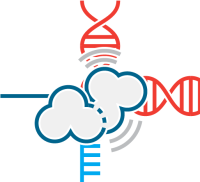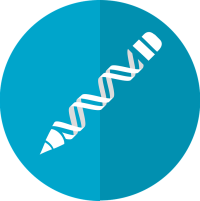Our lab develops an open-source text mining software called NimbleMiner (http://github.com/mtopaz/NimbleMiner). We will work on improving the software using the latest machine learning techniques.

Our lab develops an open-source text mining software called NimbleMiner (http://github.com/mtopaz/NimbleMiner). We will work on improving the software using the latest machine learning techniques.

Locally advanced colorectal cancers that invade adjacent organs (i.e., T4 primary tumors) without evidence of distant metastasis account for approximately 5-15% of new colorectal cancers. There are limited multi-institutional study describing the perioperative complication rates and long-term survival of patients undergoing single organ resection after neoadjuvant chemotherapy and/or radiation versus multivisceral resections for patients with T4 colorectal cancers. Using the American College of Surgeons National Cancer Database (NCDB), we seek to analyze differential outcomes (perioperative complications and overall survival) by procedure performed, tumor details, pathological findings, chemo-radiotherapy regimens, patient demographics.

Atherosclerosis—a chronic inflammatory disease of the artery wall—is the underlying cause of human coronary heart diseases. Cells within atherosclerotic lesions are heterogeneous and dynamic. Their pathological features have been characterized by histology and flow cytometry and more recently, by bulk-tissue omics profiling. Despite this progress, our knowledge of cell types and their roles in atherogenesis remains incomplete because of masking of differences across cells when using genomic measurement at bulk level. Single-cell RNA sequencing (scRNA-seq) has catalyzed a revolution in understanding of cellular heterogeneity in organ systems and diseases. This project applies scRNA-seq to define the genetic influences on cell subpopulations and functions in atherosclerotic lesion of transgenic mice for candidate risk genes of human coronary heart diseases as inspired by human genomic discoveries. The students involved in this project are expected to work on: (1) analysis of scRNA-seq data using R/Bioconductor packages; (2) Interpretation of the data using pathway and network analysis. Some relevant workflows are available through the “Resources” page of our lab website at https://hanruizhang.github.io/zhanglab/.

We are interested in investigating how deaths and hospitalizations resulting from opioid overdoses cluster across space and time in the US. This analysis will be conducted with the aid of two comprehensive databases: 1) detailed mortality data across the US; and 2) a stratified sample of all hospitalizations in the US, which can be subset to select for opioid overdoses. Analyses will be extended to drug type (prescription drugs, fentanyl etc.) and subject demographics (age, race, etc.). We have previously conducted similar cluster analysis for other health phenomena.

Defective efferocytosis, the phagocytic clearance of apoptotic cells, by macrophages is the cause of many human diseases including tumor, autoimmune diseases and atherosclerosis. Enhancing efferocytosis has potential therapeutic benefits. Many key regulators of efferocytosis have been identified, but a systematic approach to map regulators of efferocytosis in an unbiased manner on a genome-wide scale is missing. This project applies innovative genome-wide CRISPR screen to discover novel regulators of macrophage efferocytosis.

We have been studying bladder cancer in a mouse model of the disease and we are seeking to understand the molecular features of the mouse models as they relate to human bladder cancer.

The Federal Communications Commission (FCC) and the Census regularly publish data on U.S. Internet availability, performance and use, at granularities from census block to county and state. The project goal is to answer questions based on the available data, such as “How reliable is Internet access?”, “Who is deploying fiber where?”, “Can we predict reliability of different technologies?”, “Can we predict the deployment of fiber?”
